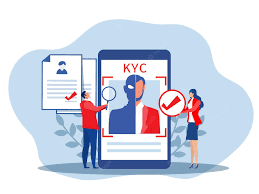What is KYC? Simply put, it’s a process that allows banks and other financial institutions to verify the identity of customers and eliminates the risk of fraud. KYC checks are important especially for those fighting against money laundering. Failing to perform KYC can lead to criminal prosecution or fines, or even reputational damage.

The regulations help prevent money laundering and other forms of financial crime. It also prevents a business from dealing with a customer who may have hidden financial crimes or non-compliance. Because KYC procedures must be ongoing throughout the customer relationship, regulated companies must be aware of the risk involved. KYC is a vital part of anti-money laundering regulations. Find details on AML ID CHECK processes at a site like www.w2globaldata.com/regulatory-compliance-solutions-and-software/aml-id-checks
KYC requires financial institutions to verify a customer’s identity before granting them access to their accounts. This begins before the person becomes a customer. Prospective customers must provide personal documents to prove their identity. KYC also prevents a financial institution from being used for money laundering. If a financial institution does not follow KYC guidelines, it can face heavy penalties. 
Today, eKYC allows companies to verify a customer’s identity through digital means. These systems can verify the authenticity of an individual by uploading documents or performing biometric verification. The process of KYC is advancing, thanks to new technologies and globalisation. One recent survey revealed that thirty percent of companies take more than two months to onboard a new client. That’s a significant period of time – and it’s also affecting revenue growth and brand image. Faster eKYC solutions improve the customer onboarding process by reducing human error.

















+ There are no comments
Add yours